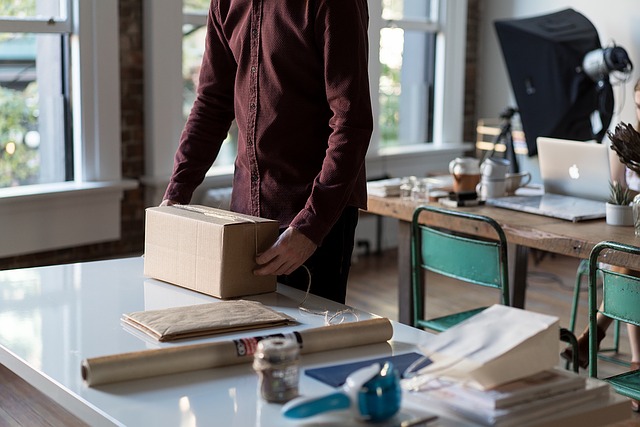
How to Start a Small Business With the Help of Fulfillment by Amazon
Fulfillment by Amazon can be a great way to generate five or six figures, and it’s one of the easier ways to get a business going in this day and age. It’s also possible to run it as a sort of side venture, supplementing one’s primary income. However, it can seem daunting at first glance. After all, an FBA business is still a business, and that means a load of things to consider and risks to take.
For those among you who want to take a crack at this venture, read on and you’ll get a quick guide that looks over what you need to do. This includes accounts to register, partners to find, and even a few ideas on how to get a good freight forwarder for Amazon.
What Are You Selling?
Your first step is to have a product. What do you intend to sell? Do you have a new product or are you looking to just take an existing one and make a few changes? Does the product have a market big enough to sustain your goals? How saturated is that market? There are a lot of questions that need answers from the get-go, so it’s best to get them out of the way first.
Who Makes Them?
If you know what you’re going to sell, the next step is knowing where you’re going to get the products. If your FBA business is intended to be very small, you can probably get away with making the products by hand, one at a time. However, if you’re looking to go into serious business or can expect a great amount of customer reach, you need a partner.
Chinese manufacturing company Alibaba is a common choice, though you might find others. They have a catalog of products ready-made, just waiting for you to order and to modify with your branding and imagery. This is what has made getting into FBA so easy, though it has also resulted in a flood of similar products with similar prices, where the only difference is the branding.
While Alibaba is probably the first thing that comes to mind, don’t confine yourself to just one option. Search for different factories and start conversations with them. Talk to them about their rates, what they offer, discounts, and more. It’s hard to pin down specific criteria, so trust your instincts but don’t just rush into things.
What Makes You Different?
Now, a crucial way to stand out from the glut of FBA ventures is to improve on an existing product. Make a modification, add a feature, or make an upgrade. Do something that makes it stand out from the rest of the crowd, something that you can use as an anchor for your marketing campaign.
Once you have that modification or you have someone who can figure it out for you, get a prototype. Prototyping can be a long, taxing process. It’s not something you might be able to pull off alone. However, it’s worth all that effort if you can get yourself a product that stands out rather than bleeds into the background.
Who Moves Them?
Once you have the stock, you need to move it. You can’t have your products resting in the manufacturer’s warehouse, but instead, move it to an Amazon facility. For this, you need to get a freight forwarder for Amazon. These are businesses that you can partner up with to simplify a number of details when fulfilling an order or otherwise moving your products. Go for one that has FBA experience, so they know the nuances already.
If you get an FBA partner, the process becomes simple. The factory will deliver your ordered products to the FBA facility. The freight forwarder will then handle the process of labeling and shipping out the items to fulfill customer orders, taking care of things like international customs. From there, Amazon’s partner couriers will receive the packages to complete the deliveries.
How Much Do You Charge?
Do some research on pricing your offering. If you charge a price that’s too low, you are less likely to make a profit or sustain your enterprise. If you overcharge, no one will buy anything from you, especially if what you offer isn’t all that different from what else is on the market.
Check the price range of your products, as seen on Amazon itself. Take the time to find what the lowest and the highest are, and find a price that gives you a comfortable balance between accessibility to customers and profitability for you. If you’re not good at this, don’t despair. Amazon has tools that can help you with that.
Are You On Amazon?
Finally, you need to sign up on Amazon as a seller and get your product listed. You can’t take any orders unless they’re up there, visible and ready for whoever is in need of them.
Conclusion
There’s no such thing as a truly risk-free way to start a business. There are ways to reduce the risks when you get to work on an FBA enterprise, though. With some preparation, time, and effort, you can get a business off the ground and ready to meet with success.
